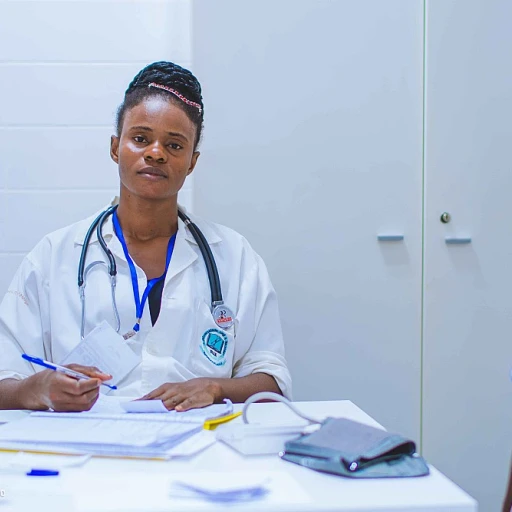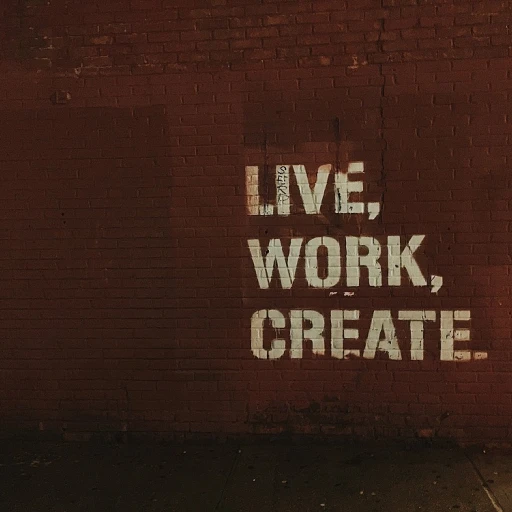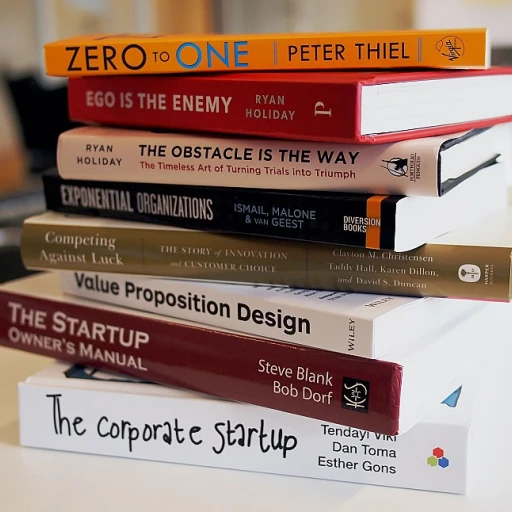
Understanding the Role of Consulting Interviews in Leadership
The Importance of Consulting Interviews in Leadership Development
Consulting interviews play a pivotal role in shaping future leaders. These interviews are not just about assessing technical skills or industry knowledge; they are a comprehensive evaluation of a candidate's potential to lead, solve problems, and fit within a firm's culture. Consulting firms use these interviews to identify individuals who can thrive in dynamic environments and contribute to the firm's success.
Understanding the nuances of consulting interviews is crucial for anyone aspiring to develop leadership skills. These interviews often include a mix of case interviews, fit interviews, and behavioral questions. Each type of interview question serves a specific purpose in evaluating a candidate's capabilities.
Case Interviews: A Test of Problem-Solving Skills
Case interviews are a staple in consulting interviews, designed to assess a candidate's problem-solving abilities. They simulate real-world business scenarios, requiring candidates to analyze data, identify key issues, and propose actionable solutions. This process not only tests analytical skills but also the ability to think critically under pressure.
For example, a market sizing question might ask a candidate to estimate the potential market for a new product. The interviewer is looking for a structured approach to breaking down the problem and arriving at a logical conclusion. This skill is essential for leadership roles, where decision-making and strategic thinking are paramount.
Fit Interviews: Assessing Cultural Compatibility
Fit interviews focus on evaluating whether a candidate's values and work style align with the consulting firm's culture. These interviews often include questions about past experiences and how candidates have handled specific situations. Behavioral questions are common, as they provide insights into how a candidate might perform in the role.
Interviewers are keen to understand how candidates have demonstrated leadership in previous roles, managed teams, or navigated challenges. This information helps firms determine if a candidate will be a good fit for their team and contribute positively to the firm's environment.
For those seeking to enhance their leadership development, consulting interviews offer a unique opportunity to showcase a range of skills. By preparing effectively and understanding what interviewers are looking for, candidates can position themselves as strong contenders for leadership positions. For more insights on leadership development, consider exploring inspirational films for aspiring leaders.
Key Consulting Interview Questions to Anticipate
Essential Inquiries: Navigating the Consulting Interview Landscape
A successful consulting interview hinges on anticipating the questions you may encounter. It's not just about knowing the potential queries; it's about understanding how consulting firms use these questions to assess candidate potential. Knowing what to expect provides a strategic advantage. Consulting interviews generally fall into two categories: case interviews and fit interviews. Both formats are essential in evaluating different aspects of a candidate's suitability for the job.- Case Interviews: Here, you’ll be presented with a business problem. Think of it as a scenario where your problem-solving skills are put to the test. The interviewer looks for logical thinking, market sizing, and creativity in how you tackle real-world business challenges. Consulting firms use case interviews to assess your analytical and strategic thinking. For example, you might be asked how you would improve a business’s processes or address a competitor's market entry.
- Fit Interviews: These questions focus on your personality, motivation, and past work experiences. They delve into your behavioral skills and understanding of company culture. Fit interview questions, or behavioral questions, assess your compatibility with the firm’s ethos and team dynamics. They typically explore situations where you demonstrated leadership, teamwork, or resilience.
Analyzing Responses: What Interviewers Look For
What Interviewers Look For in Your Responses
In consulting interviews, especially when aiming for leadership roles, interviewers are digging deeper than merely your ability to answer questions. They are assessing various dimensions that will determine your fit and future performance in the consulting firm.- Problem-Solving Skills: This remains a cornerstone of leadership potential. Interviewers evaluate how you approach complex problems, often through case interviews. They want to see if you can logically break down issues, use data effectively, and provide actionable solutions. Case interviews, with their focus on market sizing and strategy, are designed to gauge these skills.
- Behavioral Competence: Many firms use behavioral questions to ascertain your capability to handle real-world situations. Here, they seek examples of past experiences where you demonstrated leadership, teamwork, or conflict resolution. Strong responses often include specific examples that highlight your role and the impact of your actions.
- Cultural Fit: Consulting firms place significant emphasis on ensuring candidates align with their core values and work culture. Fit interview questions help them determine how well your interpersonal skills, values, and teamwork abilities match the organization's environment.
- Communication Skills: Clear and concise communication is essential in consulting roles. Your ability to convey complex information simply and compellingly is critical. Interviewers look for structured, well-articulated answers in both consulting fit and case interviews.
- Time Management and Prioritization: Given the demanding nature of consulting jobs, firms assess how well you manage time and prioritize tasks. Your ability to fill this role effectively often hinges on how you demonstrate these skills during interviews.
Preparing for Success: Strategies for Answering Effectively
Enhance Your Response Strategy for Ultimate Success
Preparing for a consulting interview is much like gearing up for a demanding performance; every response must resonate with precision, clarity, and confidence to leave a lasting impression. Understanding the nature of the questions can greatly help in crafting a tailored strategy that aligns with the role you are targeting. To start, familiarize yourself with different types of interview questions you might encounter. In consulting interviews, there is often a combination of case interviews, fit interviews, and consulting behavioral questions. Each category serves a unique purpose and thus requires a distinct approach:- Case Interviews: These questions assess your problem-solving skills, logical reasoning, and ability to structure a complex scenario under time constraints. Practicing market sizing and quantitative analysis can sharpen your aptitude.
- Fit Interviews: Here, consulting firms want to gauge how well you will integrate into their corporate culture. Questions in this category often explore past work experiences and behavioral insights.
- Behavioral Questions: These typically follow the STAR (Situation, Task, Action, Result) method. An example might be drawing from a past job situation to demonstrate leadership or teamwork abilities.
The Connection Between Problem-Solving and Leadership
The Critical Role of Problem-Solving in Leadership
Effective leadership is closely tied with the ability to solve problems skillfully. In consulting interviews, problem-solving skills are often assessed through a variety of question types - such as case interviews and market sizing questions. These interviews are designed to evaluate not just theoretical knowledge, but how a potential leader approaches complex issues. One of the key aspects that interviewers focus on during a consulting interview is the structured approach a candidate uses to dissect a problem. Here are a few areas where problem-solving and leadership intersect:- Analytical Thinking: Leadership in consulting requires the capacity to analyze vast sets of data quickly and draw actionable insights. During case interviews, candidates must demonstrate their ability to think critically and innovatively.
- Decision-Making: Leaders are often tasked with making critical decisions, sometimes under tight time constraints. Consulting interviewees are evaluated on how they reach a conclusion by weighing various options and potential outcomes.
- Communication: It's not just about reaching the right answer; consulting firms are looking for how well candidates articulate their thought processes. Effective communication during an interview reflects how one might lead a team by clearly conveying complex concepts.
- Adaptability: When questions throw unexpected variables, successful candidates will adjust their approach without losing focus. This adaptability is a core trait of effective leaders who can navigate the shifting realities of a rapidly evolving market.
Reflecting on Feedback: Continuous Leadership Development
Continuous Growth through Meaningful Feedback
The journey towards effective leadership doesn't conclude with acing the consulting interview. In fact, it's just a stepping stone towards ongoing development. Reflecting on the feedback received during and after interviews is a pivotal aspect of enhancing one's leadership capacities. Understanding the nuanced feedback from interviewers allows you to identify areas where improvement is necessary. Recognizing strengths is equally important, as it reinforces the skills that you should continue to leverage, ensuring they align with the firm’s expectations and culture.- Identify Patterns: Take note of recurring themes in the feedback. Are there particular questions or case scenarios where you consistently struggle? This may reflect gaps in your problem-solving abilities or market sizing acumen that need addressing.
- Develop a Plan: Use the insights gained to create a personalized development plan. Perhaps you need to develop better strategies for answering behavioral questions or improve your fit interview responses. An actionable plan ensures targeted improvement.
- Leverage Resources: Engage with available resources, such as mentorship programs or leadership workshops. These can provide guidance tailored to your specific needs, enhancing your leadership skills in real-world contexts.













